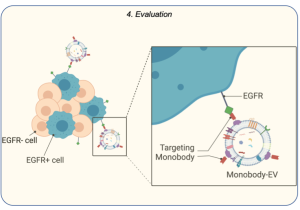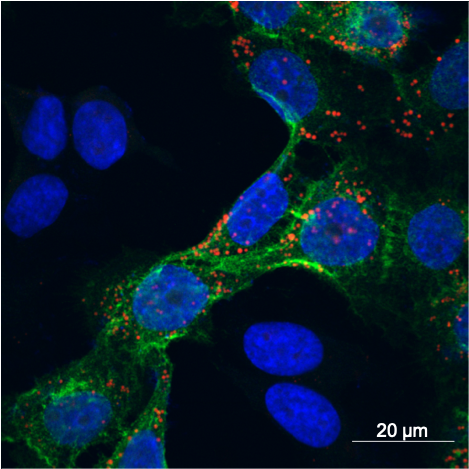 Masako Harada, PhD, at the Institute for Quantitative Health Science and Engineering was recently awarded a one-year, $193,371 grant by the Elsa U. Pardee Foundation. The organization provides support for innovative cancer research with a focus on new scientists with cutting-edge ideas.
Masako Harada, PhD, at the Institute for Quantitative Health Science and Engineering was recently awarded a one-year, $193,371 grant by the Elsa U. Pardee Foundation. The organization provides support for innovative cancer research with a focus on new scientists with cutting-edge ideas.
The project, titled, “Targeted extracellular vesicles mediated therapeutic microRNA delivery,” is led by Dr. Harada, assistant professor in the Department of Biomedical Engineering, and hopes to offer a new approach to cancer therapy.
Existing clinical trials of targeted therapeutics that act on a well-defined molecular mechanism of disease pathologies encountered safety issues related to the accumulation of molecules in off-target locations in the body. One such molecule, microRNA (MiRNA), holds promising therapeutic potential, but scientists have yet to find a delivery method for miRNA without adverse side effects.
“An efficient delivery system is a key to establishing miRNA therapy,” Dr. Harada explains. “This project will demonstrate proof-of-principle for a therapeutic miRNA delivery system based on cell-derived extracellular vesicles (EVs). EVs, the body’s natural biomolecular transporters, could overcome issues associated with existing delivery systems.”
 The lab aims to generate engineered EV as a therapeutic miRNA carrier using their method to modify EV surface with antibody mimetics to target Epidermal Growth Factor Receptor (EGFR) tumors. These EVs should then be capable of efficient delivery of miRNAs into EGFR+ cancer cells, where the miRNA will exert powerful anti-tumor effects.
The lab aims to generate engineered EV as a therapeutic miRNA carrier using their method to modify EV surface with antibody mimetics to target Epidermal Growth Factor Receptor (EGFR) tumors. These EVs should then be capable of efficient delivery of miRNAs into EGFR+ cancer cells, where the miRNA will exert powerful anti-tumor effects.
Through this research, Dr. Harada and her team hope to demonstrate that these EVs have EGFR tumor specificity and anti-tumor effects, thus opening the door to new possibilities for treating other types of cancers.
“The EVs will have lower immunogenicity, cytotoxicity, and efficient miRNA release than nanoparticles. These validations will build bases to develop targeted therapy using more clinically appropriate EVs, such as patient cell-derived EVs,” Dr. Harada shared.
Read more about Dr. Harada, or visit her lab website to read more about her research.
- Communications contact: Saneeya Mir


